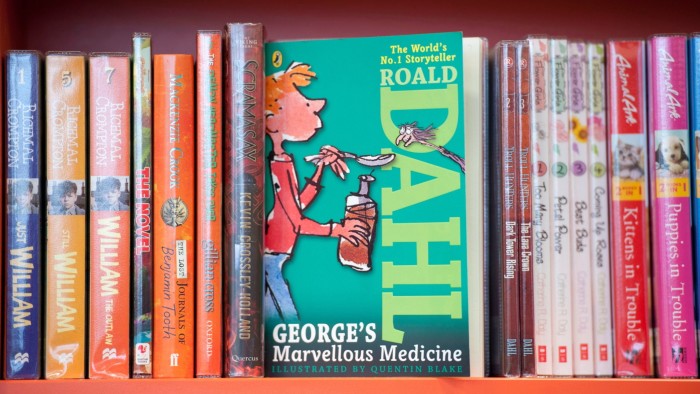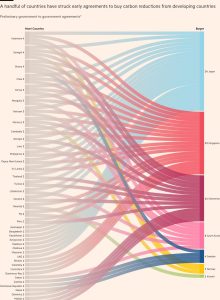Children will read for pleasure if books are a source of joy

Unlock the Editor’s Digest for free
Roula Khalaf, Editor of the FT, selects her favourite stories in this weekly newsletter.
The writer is an author of fiction, cookery books and poetry anthologies. Her latest book is ‘The Dinner Table’, a collection of food writing
National Literacy Trust stats this week make for unhappy reading: unhappy reading, of course, being the problem at hand. Two-thirds of children in the UK don’t read for pleasure; four in five don’t read daily. This is the single biggest year-on-year fall in reading enjoyment ever recorded. It’s hard not to feel bleak: as a person who has written children’s books, is an earnest volunteer librarian and who reads near-constantly, it’s pretty depressing to feel part of a doomed culture.
It’s also pretty depressing, honestly, because books are so nice. We talk a lot about how vital reading is as a skill, or a developmental milestone; we go heavy on books as nutrition and education, a kind of eat-your-greens approach to literature that makes books (much like greens) seem less delicious than they are. We aren’t good enough, I think, at sharing books as a source of joy.
The report is clear: children who enjoy reading read daily; children who don’t, don’t. Children who enjoy reading find reading easier; children who don’t, don’t.
Adults don’t read for pleasure, either, or at least, significantly less than they used to. Half don’t read regularly or at all. And yet the majority of adults surveyed do want to read. There are books, specific books, that they would actively like to read. They simply do not have time. The book would have to take the place of something else in their day. If it can’t replace the hard realities, it had better replace the small comforts. And who would swap a known and easy comfort — telly, say, or endless doomscrolling — for the gamble of a book?
Only someone who already loved reading would do that; only someone who didn’t feel already daunted by the whole thing. And listen: if the adults are overworked and overtired, might not the same be true of their offspring?
How much time is set aside for the average child to sit and read? How much space is created in the school day? If a carer is working late, who is reading to the child? There is a correlation between children who need free school meals, and children who don’t read for pleasure: when money is scarce, then time is almost always scarce as well.
If books are to be central in our lives, we need to make them central. Libraries, for instance, open and warm, with plug sockets and places to get a good coffee. Homes that are full of books, and parents with time to read. Schools with well-stocked shelves and cosy corners to curl up in. Imaginative teachers with time to tell stories. Good stories, and good books, published with an eye on what children really want, and who children really are, rather than adult ideals and adult celebrity.
I worry, sometimes, that the children’s books that get the most attention are the kind that children don’t really love: the kind of books that believe children are easy to write for because their brains are small and the font is large. The books are short! How hard can it be? As someone who writes for both adults and children, I can tell you that children’s books are much harder — if you’re doing it right. How to convey, in words understood by the average six-year-old, the truth and beauty and horror of this world? How can you forge that vital, mysterious, passionate connection between writer and reader when half the space has to carry pictures?
And if you’re not doing that — all of that — how can you possibly expect children to understand what’s good about books? This is what writing is and what reading should be. Choose good books: really good books, ones that make you shake and laugh and cry real tears. Choose books that feel like lightning. Read them to your children. Read them to yourself. Hack out space for reading everywhere you can, and fight for libraries everywhere you go.
(Oh, and turn your phone off. But you already knew that.)
#Children #read #pleasure #books #source #joy




